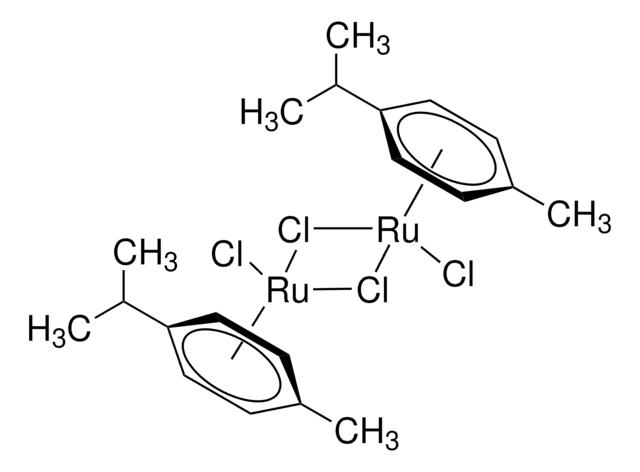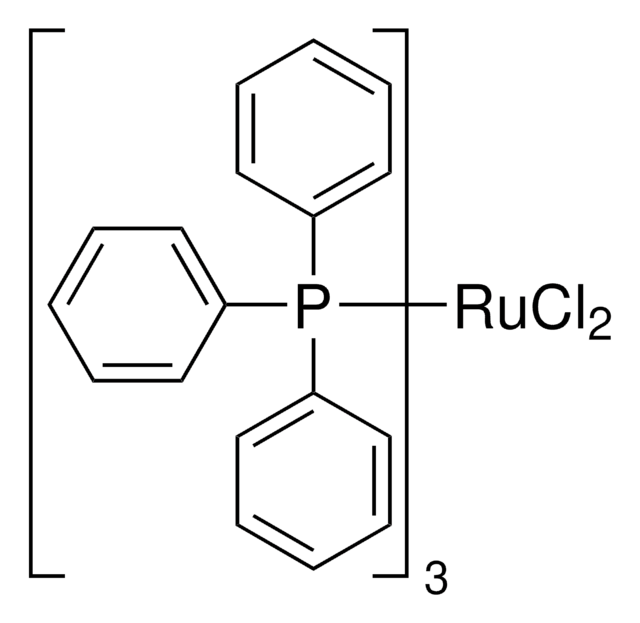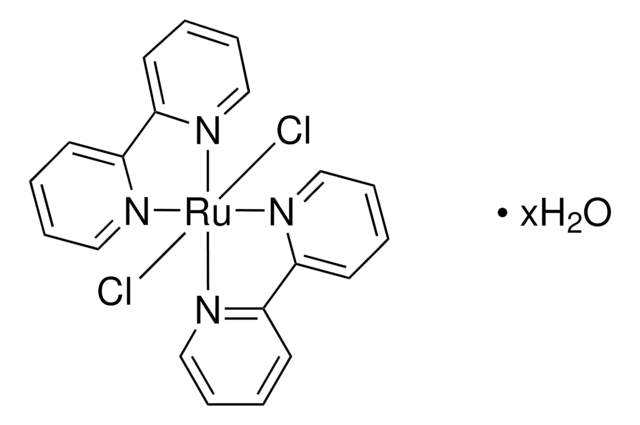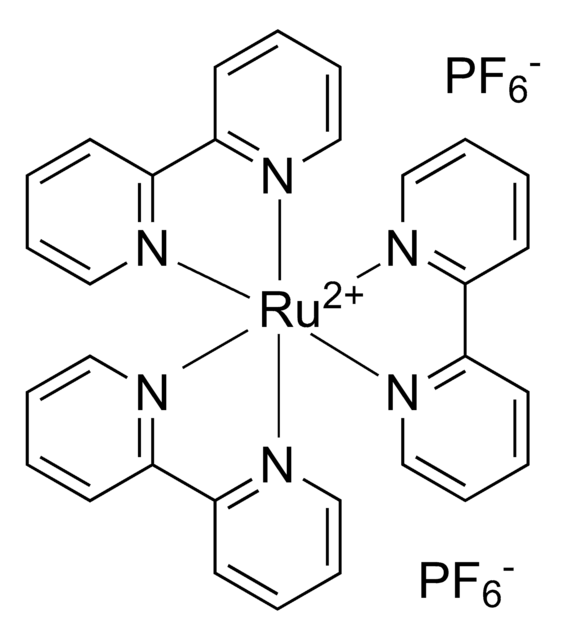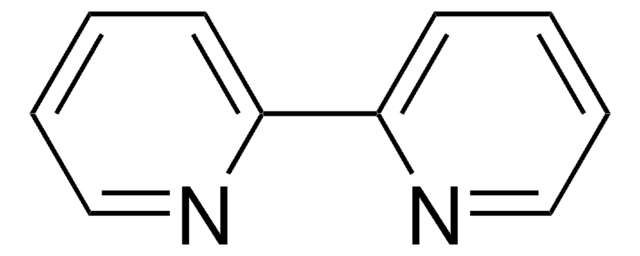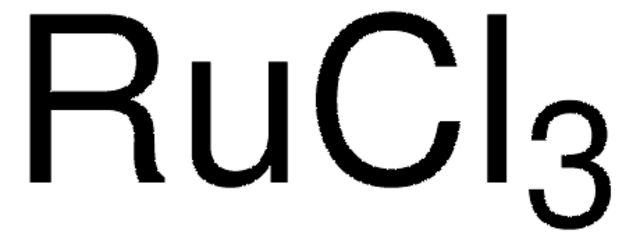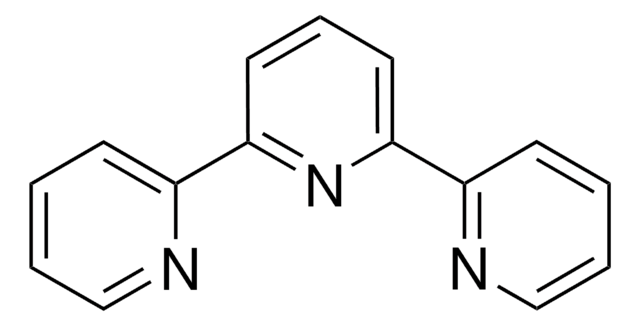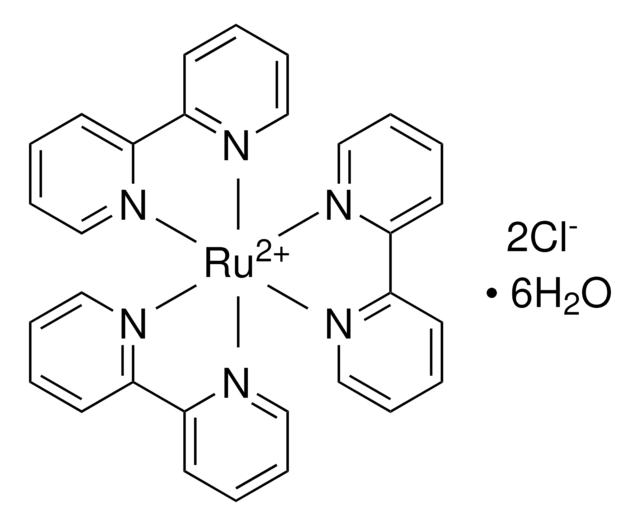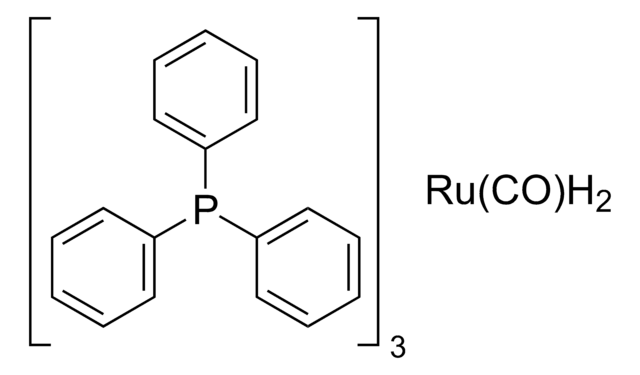733210
Tetrakis(dimethylsulfoxide)dichlororuthenium(II)
96%
Synonym(s):
Dichlorotetrakis(dimethyl sulfoxide)ruthenium
Sign Into View Organizational & Contract Pricing
All Photos(1)
About This Item
Empirical Formula (Hill Notation):
C8H24Cl2O4RuS4
CAS Number:
Molecular Weight:
484.51
UNSPSC Code:
12352300
PubChem Substance ID:
NACRES:
NA.22
Recommended Products
Quality Level
assay
96%
form
solid
reaction suitability
core: ruthenium
reagent type: catalyst
mp
192-198 °C
SMILES string
O=S(C)C.O=S(C)C.Cl[Ru](Cl)O=S(C)C.O=S(C)C
InChI
1S/4C2H6OS.2ClH.Ru/c4*1-4(2)3;;;/h4*1-2H3;2*1H;/q;;;;;;+2/p-2
InChI key
UMJDEUKQHKMAOI-UHFFFAOYSA-L
Related Categories
General description
Tetrakis(dimethylsulfoxide)dichlororuthenium(II), [RuCl2(dmso)4] is an organoruthenium compound. It is used as a homogeneous catalyst in organic synthesis.
Tetrakis(dimethylsulfoxide)dichlororuthenium(II) (Ru(DMSO)4Cl2) is a coordination complex generally used as a catalyst in various reactions. In addition, it is also used as a precursor in the synthesis of other ruthenium complexes.
Tetrakis(dimethylsulfoxide)dichlororuthenium(II) (Ru(DMSO)4Cl2) is a coordination complex generally used as a catalyst in various reactions. In addition, it is also used as a precursor in the synthesis of other ruthenium complexes.
Application
RuCl2(dmso)4 can be used as a catalyst for:
Tetrakis(dimethylsulfoxide)dichlororuthenium(II) can be used as a precursor in the synthesis of Ru(II)-MEPE (metallo-supramolecular polyelectrolytes) complex, which is used to prepare electrochromic organic-metallic hybrid polymers.
- The β-alkylation of secondary alcohols via hydrogen auto-transfer process.
- The oxidation of thioethers (S) to sulfoxides by N-methylmorpholine N-oxide (NMO).
Tetrakis(dimethylsulfoxide)dichlororuthenium(II) can be used as a precursor in the synthesis of Ru(II)-MEPE (metallo-supramolecular polyelectrolytes) complex, which is used to prepare electrochromic organic-metallic hybrid polymers.
Storage Class
11 - Combustible Solids
wgk_germany
WGK 3
flash_point_f
Not applicable
flash_point_c
Not applicable
Certificates of Analysis (COA)
Search for Certificates of Analysis (COA) by entering the products Lot/Batch Number. Lot and Batch Numbers can be found on a product’s label following the words ‘Lot’ or ‘Batch’.
Already Own This Product?
Find documentation for the products that you have recently purchased in the Document Library.
Customers Also Viewed
Evolution of physical and photocatalytic properties of new Zn (II) and Ru (II) complexes
Polyhedron, 170, 412-423 (2019)
Our team of scientists has experience in all areas of research including Life Science, Material Science, Chemical Synthesis, Chromatography, Analytical and many others.
Contact Technical Service
